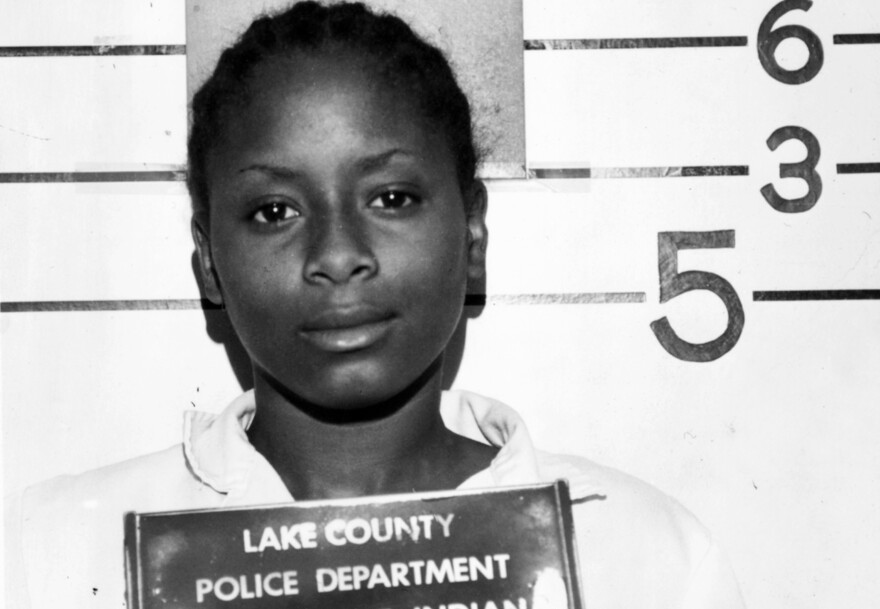Paula Cooper, 43, left prison Monday morning, decades after she became America's youngest resident of death row at age 16. She had confessed to the 1985 murder of Bible studies teacher Ruth Pelke, 78, in Gary, Ind. Cooper's death sentence was commuted in 1989, after widespread appeals for mercy.
"An appeal from Pope John Paul II, an international campaign to overturn the death sentence and legal challenges helped to spare Cooper's life," reports The Indianapolis Star. "The Indiana Supreme Court commuted the death sentence in 1989 and sent her to prison for 60 years. She earned credits for an early release."
Cooper admitted to killing Pelke as part of a robbery in which she and three other teenage girls went to Pelke's house. Cooper, who was 15 at the time of the murder, said that she used a kitchen knife to cut Pelke more than 30 times. The other girls in the case have already been released from prison.
The case shocked the public, and Cooper's death sentence drew protests and calls to spare her life. One of her supporters was Bill Pelke, a grandson of Ruth Pelke. He tells the AP that his grandmother would have been "appalled" by the thought of a young girl being executed.
Over the years, Pelke became friends with Cooper during her prison sentence. And yesterday, Pelke, who now lives in Alaska but has reportedly traveled to Indiana for Cooper's release, told CNN that he plans to take her shopping when he meets with her.
Saying that Cooper is supposed to call him, Pelke tells CNN, "I told her whenever she got out, I'd treat her. I have a friend who would like to buy her an outfit, and I want to buy her a computer."
The Star reports that Cooper has worked to rehabilitate herself, after some rough years in the first half of her prison sentence.
"I was very bitter and angry, so I was in a lot of trouble. I hated it. But I learned to adapt eventually," Cooper told The Star in 2004. "I decided for myself it was time to really sit down and buckle down and get it, because it wasn't gonna always be there."
Cooper took classes in prison and earned her bachelor's degree. "She also helped train dogs as companions for the disabled and, since 2011, has worked as a tutor," the paper says.
In 1988, the U.S. Supreme Court ruled that convicted killers could not be executed in cases where they committed the crime before they were 16. In 2005, the court abolished capital punishment for people under the age of 18, saying that such executions "violate the Eighth Amendment ban on cruel and unusual punishment," as NPR's Nina Totenberg reported.
Back in 1985, Indiana state law allowed for the execution of killers who were age 10 and over. The former prosecutor who worked on Cooper's case, attorney Jack Crawford, says he is now against the death penalty.
"When we asked for it, it was controversial because she was so young," Crawford tells The Star. "But my feeling was that, if the law allowed for imposition of the death sentence on a teenager, this was the case because of the facts. I couldn't imagine a worse set of facts for a defendant. But if it was ever justified, this was the time it was probably justified."
Copyright 2021 NPR. To see more, visit https://www.npr.org. 9(MDEwMTk5OTQ0MDEzNDkxMDYyMDQ2MjdiMw004))




